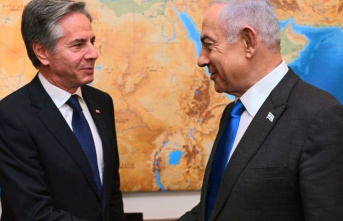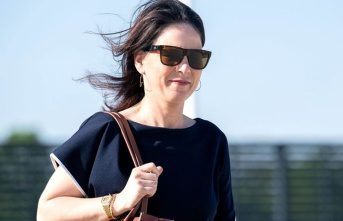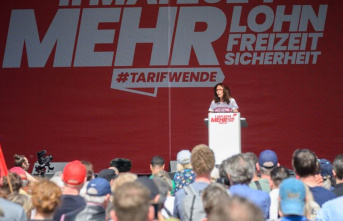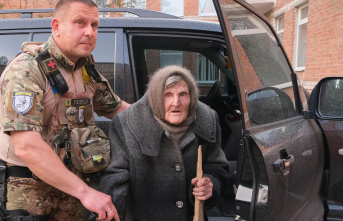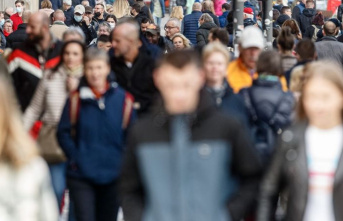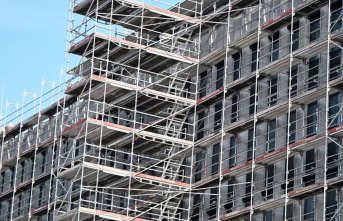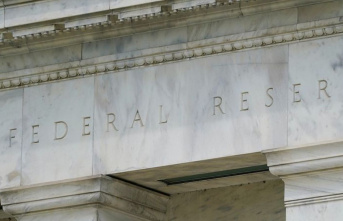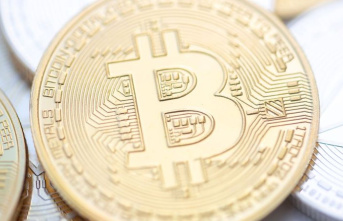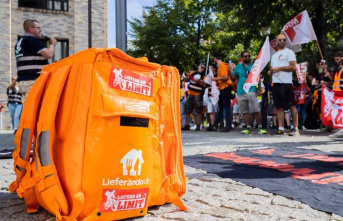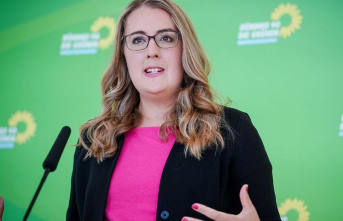The Ukraine conflict and the tensions with China overshadow the summit of the Southeast Asian community of states Asean. As host, long-time Cambodian Prime Minister Hun Sen opened the three-day gathering in Phnom Penh with a call for unity in the region and around the world.
In addition to US President Joe Biden and Secretary of State Antony Blinken, who arrive on Saturday, Russia's Foreign Minister Sergey Lavrov and his Ukrainian counterpart Dmytro Kuleba will also be there. It was unclear whether there would be bilateral talks about the Ukraine war.
Putin at none of the summits
The ASEAN meeting is the prelude to three summits in Southeast Asia in quick succession: On Monday, Biden will meet China's head of state and party leader Xi Jinping on the Indonesian island of Bali for the first time since taking office almost two years ago. The heads of state and government of the group of major economic powers (G20) will meet there on Tuesday and Wednesday in Bali. The Asia-Pacific Economic Community (APEC) summit will then take place on Friday and Saturday in Bangkok, Thailand.
However, Russian President Vladimir Putin will not be traveling to any of the summits. The differences with Russia and other countries such as China and India, which have not yet condemned Putin's invasion, are paralyzing cooperation, especially in the G20 framework, and impeding consensus. As reported by local media, the ASEAN states could not agree that Ukrainian President Volodymyr Zelenskyy can address the meeting via video.
The ASEAN countries, on the other hand, expressed concern about the situation and the violence in Myanmar. The leaders urged the military leadership in Myanmar to implement a "five-point plan" agreed with the former Burma in April 2021. This provides for an end to the violence and a dialogue with the social forces in the Southeast Asian country. Myanmar's junta chief, General Min Aung Hlaing, was not invited to Phnom Penh.
In addition to the crisis in Myanmar after the military coup and the economic effects of the corona pandemic, important points on the Asean agenda are the geopolitical tensions between China and the USA and the conflict over Chinese territorial claims against several Asean neighbors in the South China Sea . Only the outgoing Prime Minister Li Keqiang, who is no longer part of the new Chinese leadership, will take part on behalf of China.
China hopes for better relations with the United States
Before the Biden-Xi meeting, Foreign Ministry spokesman Zhao Lijian expressed hope in Beijing that the ailing relations would improve. China seeks mutual respect, peaceful coexistence and cooperation, but wants to resolutely defend its "legitimate rights and interests". It is important that the US works with China to properly deal with differences. Misunderstandings should be avoided and relations "put on the right track" again, the spokesman said.
Relations are at an all-time low. Points of contention are China's backing for Russian President Vladimir Putin in the Ukraine war, the ongoing trade war, tensions over democratic Taiwan and China's disputed territorial claims in the South China Sea. China accuses the US of wanting to hinder its rise in the world. The US, in turn, increasingly sees China as an economic rival and a threat to its security.
Beijing is "solid as a rock" on Moscow's side
Despite global outrage over Russia's invasion of Ukraine, China has described its relationship with Russia as "rock solid". Both countries are "comprehensive strategic partners," said the foreign ministry spokesman in Beijing. China and Russia do not form an alliance and their cooperation is not aimed at third parties. There is a "high level of trust". The speaker did not mention the Ukraine war at all.
Besides the G20 meeting, Xi Jinping will also attend the Asia-Pacific Summit (APEC) in Bangkok. 21 countries around the Pacific are working together in the forum: USA, China, Japan, Russia, South Korea, Canada, Mexico, Chile, Peru, New Zealand, Australia, Papua New Guinea, Taiwan, Hong Kong, Brunei, Indonesia, Malaysia, Singapore, the Philippines, Thailand and Vietnam.


